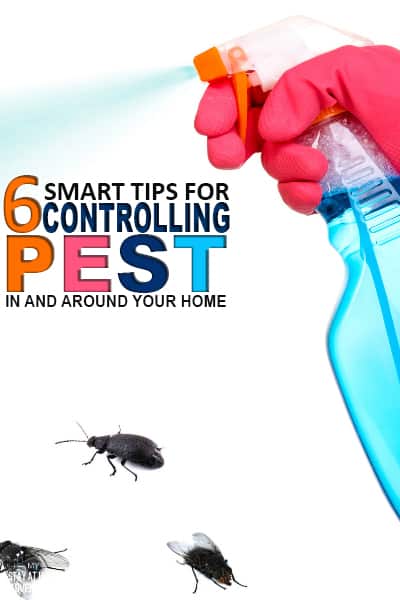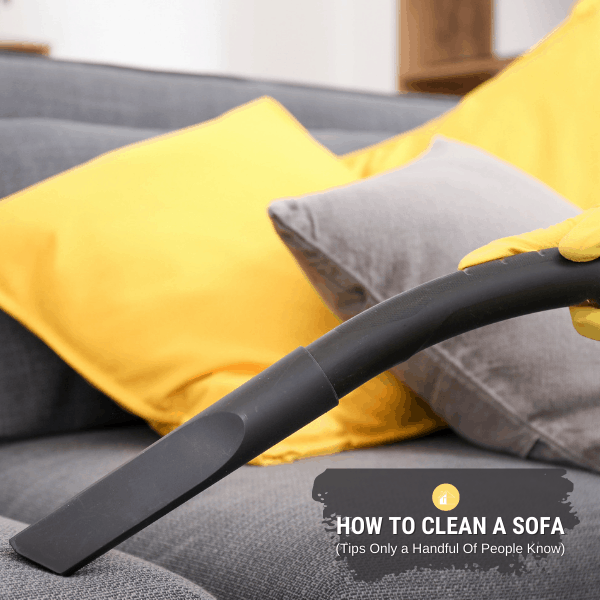6 Tips for Controlling Pests in and Around Your Home
This post may contain affiliate links which might earn us money. Please read my Disclosure and Privacy policies hereWhen it comes to the safety and comfort of your entire family, pest control is vital to fend adults and children off from annoying and dangerous pests. Rats, mice, mosquitoes, termites, bed bugs, cockroaches, spiders, flies, and the list goes on. Sometimes a single person is no match for these unwanted visitors.
Today we are going to learn about pesticides for pest control.

True enough, there are a lot of pesticides for sale in the market which are useful for pest control.
However, when a person is careless, the harmful chemicals in these different pesticide brands can be hazardous to children, pets, and plants.
When you use these chemical-laden pesticides daily, that’s a different story. They’re not only dangerous to humans, but they also contaminate waterways, air, food crops, and even land.
I’ve had my fair share when I had an embarrassing duel with a tiny cockroach while doing my mundane household chores.
In an effort to win the battle, I was spraying the pesticide all over the directions where the cockroach went. Luckily, I succeeded. A few minutes after, my inquisitive golden retriever was sniffing and licking the floor – I almost had a heart attack! Luckily again, she seemed fine.
Ways You Can Get Pesticide Poisoning
When the pests in your home are out of control and are too much to handle, it’s sometimes best to leave the extermination to the experts.
They’ll do a bang-up job in exterminating household pests entirely and safely. If you try to take matters into your own hands, be mindful of these three ways on how you can get pesticide poisoning.
Oral
We often forget to wash our hands after dealing with bug sprays. However, this is extremely hazardous especially if there are chemicals left in our hands and we put our hands near our mouth.
Or worse – touch our children! Another way of oral entry is when we accidentally spray the pesticide onto our food, and we eat it.
Respiratory
Spray cans work by using a propellant that turns liquid into vapor. They dispense the vapor under pressure. And I’m sure you notice how pungent pesticide products smell. A person can inhale the vapor through the nose or mouth which could mean trouble.
Dermal
When you’re using a mask or washing your hands afterward, don’t think you’re off the hook. The vapor can also get into the skin or eyes. These chemicals are usually absorbed very quickly too.
Tips for Pest Control
To make your home conducive for living, it’s better to take the necessary precautions, methods, and natural pesticides to avoid these pests from entering your home in the first place. Here are the top six effective ways you should try.
1. Homemade Pesticides
Pesticide sprays don’t have to be hazardous. Some are acceptably effective and can be made at home too! Here are some natural pesticides you need to know.
• Vinegar is perfect for getting rid of ants. You can take an apple cider vinegar or just any vinegar for that matter and mix it with water in equal parts. Use a spray bottle and spray away.
• The orange peels can also fight off bugs such as fungus gnats, mealy bugs, aphids, or even slugs. Just peel an orange (you can eat the fruit though) then put it in 500 mL water. Bring to a boil and let the solution settle. After 24 hours, strain the peels and put the citrus-infused mixture into a spray bottle. Add a couple of drops of castile soap and mix. You can spray this directly onto plants or ants and roaches.
• Peppermint oil smells terrific, and it’s also an organic way of getting rid of pests like beetles, fleas, lice, mice, and even spiders. When using this method, the trick here is to be strategic on where to apply the oil mixture or cotton balls. There are also a couple of ways to do this. First, you can put five drops of peppermint oil to cotton balls and place them where pests are living or where they usually enter. Another way is to spray the peppermint oil directly onto the problem areas. Lastly, you can also dilute it in water by mixing 16 ounces of water and ten drops of peppermint oil. Then transfer in a spray bottle.
2. Seal Holes, Crevices, and Gaps
Prevention is better than cure, they say. So to avoid having to deal with pests, it’s best to prevent them from getting into the house in the first place. Go outside the house and look for holes, crevices, and gaps. For smaller holes, use a waterproof silicone caulk. For bigger holes, build a base using a steel mesh. Then cover it up using expandable polyurethane foam.
3. Use a Wire Mesh to Cover Openings
For bigger openings like chimneys, crawl spaces, dryer vents, exhaust fans, or roof vents, ensure that you’re using a wire mesh or screen to cover them. For areas with a lot of mosquitos, putting a mesh or screen over windows is also an efficient way of keeping the mosquitoes out while letting the breeze in.
4. Set Up Pest Traps Outside the House
Kill the pests first to control them from coming in. You can set up different rodent or insect traps outside or inside the house. The most common ones are electronic traps, ultrasonic rodent repellents, snap traps, glue traps, cage traps, and bug zappers.
5. Dispose of Your Garbage Properly
Leftover food pieces and crumbs can invite pests. So always make sure to clean up after eating. Wipe the dining table with a tablecloth and soap. For linens with food and grease stains, use one to two tablespoons of baking soda when washing. Also, always separate wet and dry garbage and throw food waste in a proper compost bin.
6. Keep Your Floors and Carpets Clean
Spills, crumbs, dust, and dirt will attract mice. Always make sure to vacuum your carpet and floors a few times a week. Sweep the floor daily. To avoid the soil from shoes and flip flops, put floor mats in front and behind every door entrance and exit.
Related posts:
Doing these simple, natural, and effective pest control methods will prevent pests from invading your home – keeping the entire family safe and sound.
Author Bio: Sarah Brooks is passionate blogger who loves to expound on home designs, home improvement and home renovation ideas. She is currently working for Cayce Bugs, one of the leading companies dedicated to provide quality home pest control services.







2 Comments